Dijon Mustard Salad Dressing: The Unexpected Hero of Global Spice Traditions
Table of Contents
- Introduction: Why Dijon Mustard is More Than Just a Condiment
- The Origin Story: French Roots with Global Reach
- Why Dijon Stands Out in the Spice World
- 5 Creative Ways to Use Dijon Mustard in Salad Dressings
- Pro Tips for Perfecting Your Dijon-Based Dressing
- Global Spice Traditions Meets Dijon: Cross-Cultural Magic
- Pairing Dijon Mustard Dressings with Different Salads Around the World
- The Science Behind the Sting: What Makes Dijon Taste So Bold?
- Dijon Mustard in History: From Medieval Medicine to Modern Meals
- Conclusion: Embrace the Zesty Revolution
Introduction: Why Dijon Mustard is More Than Just a Condiment
Let’s face it — not all mustards are created equal. While yellow mustard might be your burger’s BFF, dijon mustard is like the Michelin-starred chef of condiments. But did you know that dijon mustard salad dressing isn’t just delicious — it's also steeped in spice history and culinary evolution? Whether you're a seasoned pro or a kitchen newbie, understanding how dijon mustard plays into global spice traditions can take your salads from basic to brilliant.
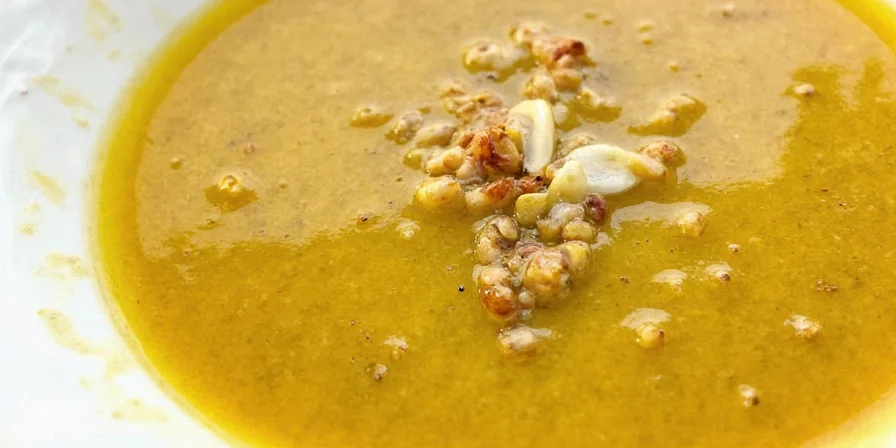
The Origin Story: French Roots with Global Reach
Dijon mustard hails from the Burgundy region of France, named after its capital city, Dijon. First crafted in the 13th century, this sharp and creamy concoction replaced vinegar with verjuice (the juice of unripe grapes), giving it a unique tang that quickly became popular across Europe. As trade routes expanded and spices traveled, dijon mustard found its way into kitchens around the world, adapting to local ingredients and flavor profiles while retaining its signature bite.
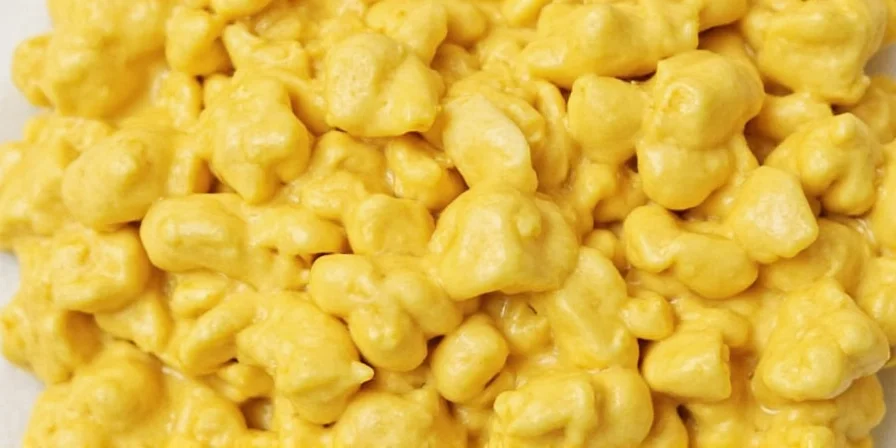
Why Dijon Stands Out in the Spice World
So what makes dijon mustard such a standout in the realm of global spice traditions? Let’s break it down:
- Flavor Profile: Tangy, slightly sweet, and deeply aromatic
- Texture: Creamy without being heavy, making it ideal for dressings
- Spice Level: Moderate heat due to finely ground mustard seeds
- Versatility: Pairs well with herbs, vinegars, citrus, oils, and more
| Type of Mustard | Heat Level | Texture | Common Uses |
|---|---|---|---|
| Yellow Mustard | Low | Slimy smooth | Burgers, hot dogs |
| Honey Mustard | Very Low | Thick & sticky | Dips, sandwiches |
| Dijon Mustard | Moderate | Creamy | Dressings, marinades, sauces |
| Whole Grain Mustard | Moderate to High | Rough & chunky | Meat pairings, rustic dishes |
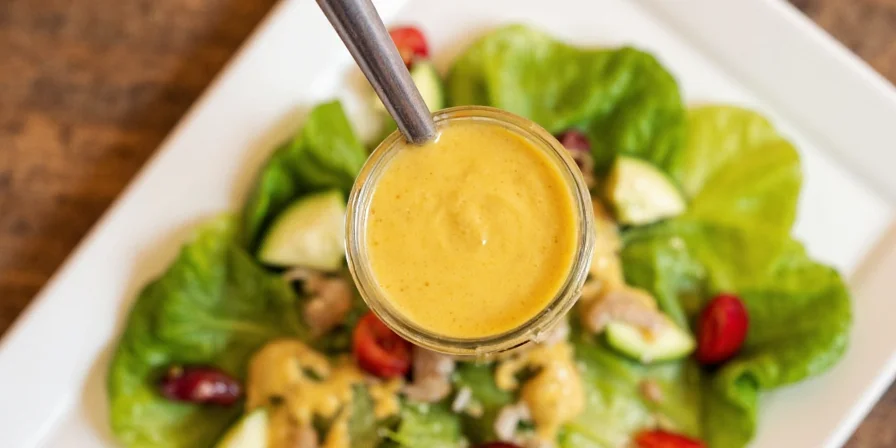
5 Creative Ways to Use Dijon Mustard in Salad Dressings
Gone are the days when dijon mustard was limited to deviled eggs or ham sandwiches. Here are five fun and flavorful ways to put it to work in your next salad:
- Classic vinaigrette: Mix 1 part dijon mustard, 1 part red wine vinegar, 3 parts olive oil, salt & pepper.
- Lemon-Herb Dream: Blend dijon with lemon zest, fresh herbs (like dill or tarragon), and a splash of apple cider vinegar.
- Asian Fusion Twist: Combine dijon mustard with sesame oil, rice vinegar, ginger, and a touch of honey for an umami-packed Asian dressing.
- Mediterranean Marvel: Add chopped Kalamata olives, sun-dried tomatoes, garlic, and dijon mustard to a base of extra virgin olive oil.
- Smoky BBQ Remix: Stir in smoked paprika, maple syrup, balsamic vinegar, and dijon mustard for a rich, smoky salad dressing with a kick.
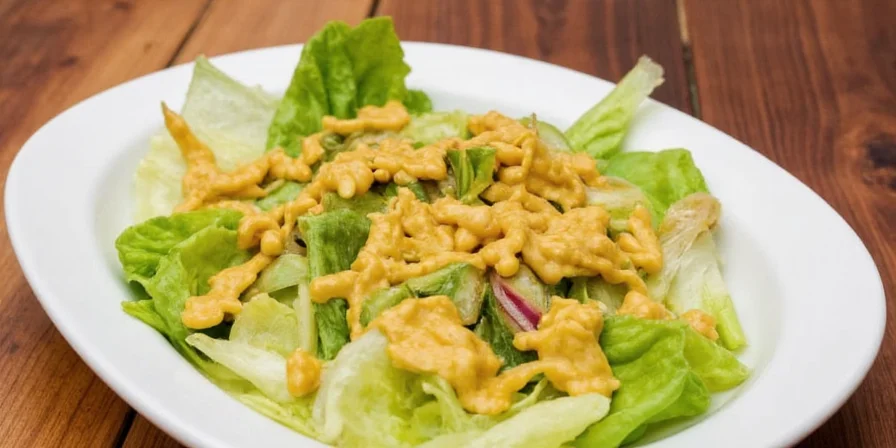
Pro Tips for Perfecting Your Dijon-Based Dressing
Want to take your dijon dressing game to the next level? Here are some pro-level secrets from chefs who swear by its power:
- Emulsify it right: Whisk slowly to avoid separation; mayonnaise or egg yolk can help stabilize the mixture.
- Balance is key: Don't let the mustard overpower the other flavors. Adjust acidity and sweetness accordingly.
- Rest before serving: Letting your dressing sit for 10–15 minutes allows the flavors to marry beautifully.
- Store smartly: Keep homemade dijon dressing in a sealed jar in the fridge for up to one week.
- Experiment boldly: Try adding spices like cumin, turmeric, or even harissa for a globally inspired twist.
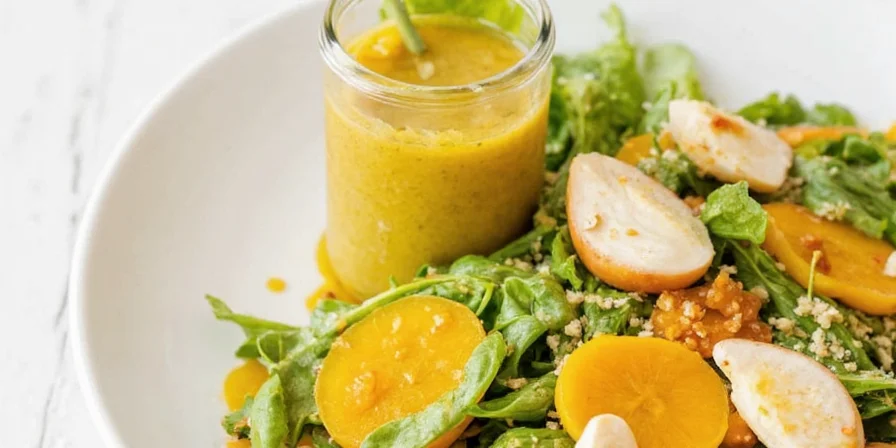
Global Spice Traditions Meets Dijon: Cross-Cultural Magic
In many cultures, spices aren't just about heat — they're about storytelling, heritage, and identity. When dijon mustard enters the scene, it becomes a bridge between Old World elegance and modern-day flavor fusion. For example:
- French: Classic coq au vin reduction with dijon
- Middle Eastern: Tabbouleh salad with a dijon-tahini dressing
- Indian: Raita-style dressing with dijon mustard, yogurt, and curry leaves
- Japanese: Miso-dijon miso glaze over grilled veggies
- Mexican: Quesadilla drizzle with lime, cilantro, and dijon mustard
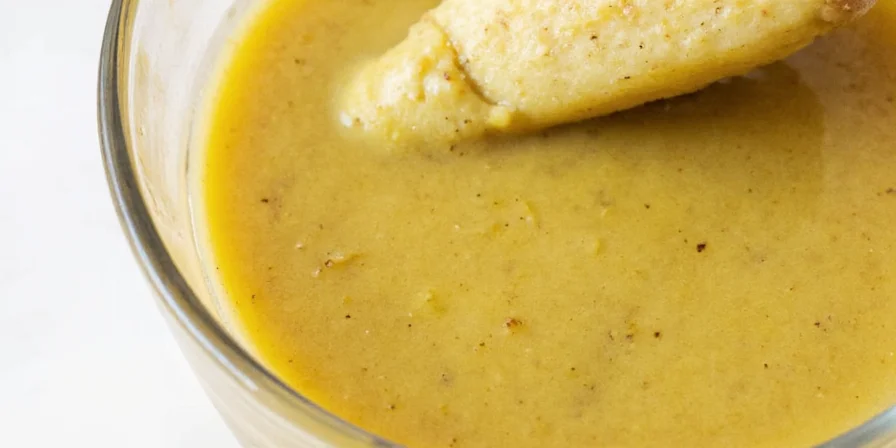
Pairing Dijon Mustard Dressings with Different Salads Around the World
To truly honor global spice traditions, let’s explore how dijon mustard enhances different types of salads:
| Salad Type | Best Dijon Pairing Style | Why It Works |
|---|---|---|
| Greek Salad | Dijon + Lemon + Oregano | Brightens the feta and balances the olives’ brininess |
| Kale Caesar | Dijon + Garlic + Parmesan | Adds depth without the heaviness of traditional Caesar dressing |
| Nicoise Salad | Dijon + Anchovy Paste + Shallots | Enhances the anchovies’ salty richness |
| Quinoa Power Bowl | Dijon + Maple Syrup + Apple Cider Vinegar | Brings out the earthy nuttiness of quinoa |
| Caprese Salad | Dijon + Balsamic Reduction | Complements the tomato’s acidity and basil’s freshness |
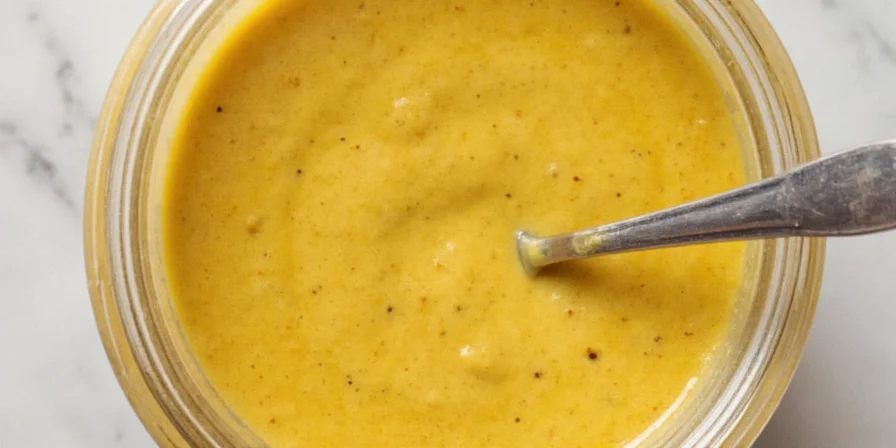
The Science Behind the Sting: What Makes Dijon Taste So Bold?
It’s not magic — it’s chemistry! Dijon mustard gets its signature zing from allyl isothiocyanate, a compound released when mustard seeds are crushed and mixed with liquid. Unlike black pepper, which delivers a slow-building burn, dijon mustard hits fast and fades quickly, creating a lively sensory experience. This makes it perfect for dressings — bold enough to excite, but not overwhelming to the palate.
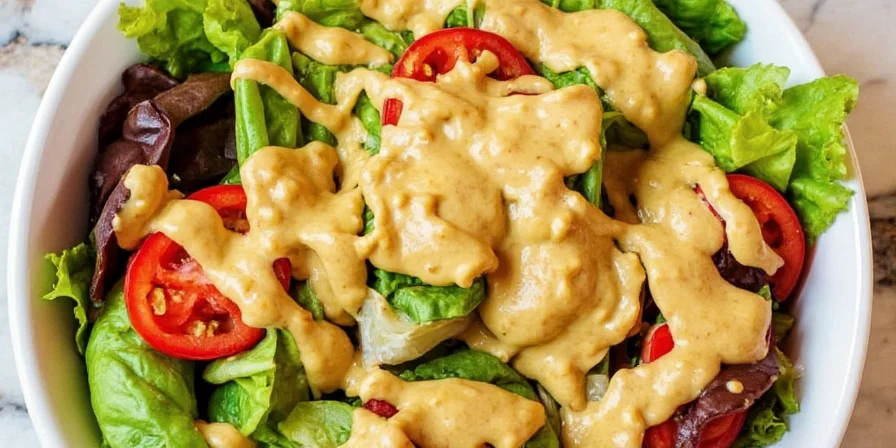
Dijon Mustard in History: From Medieval Medicine to Modern Meals
Before it graced our salads, dijon mustard had a surprisingly diverse résumé:
- Used as a remedy for colds and sore throats in medieval times
- Applied topically to relieve muscle pain
- Served at royal banquets as a luxury item
- Used in religious ceremonies for purification
- Today, it’s a pantry staple in kitchens from Paris to Peru
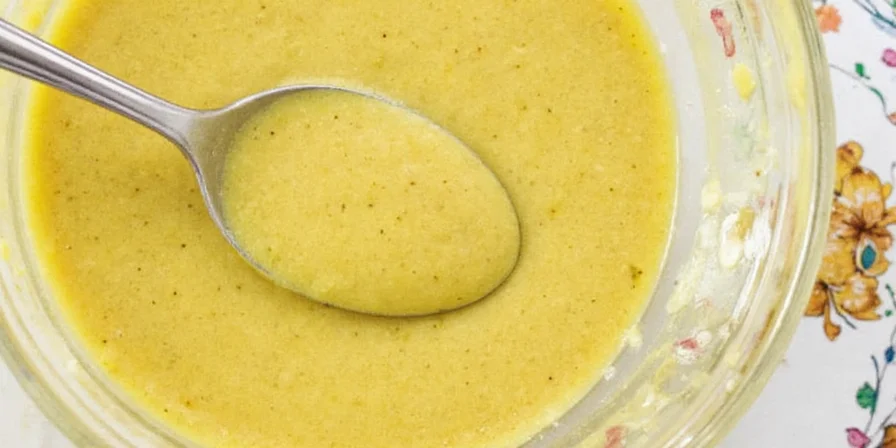
Conclusion: Embrace the Zesty Revolution
When it comes to global spice traditions, dijon mustard salad dressing is more than just a trend — it's a testament to how a humble condiment can travel through time, culture, and cuisine to become a beloved flavor enhancer. Whether you're jazzing up a simple green salad or experimenting with international flair, dijon has your back (and your taste buds).
So next time you reach for that little brown jar, remember: you’re not just adding spice — you’re stirring up centuries of tradition, chemistry, and creativity. Now go forth and dress boldly!
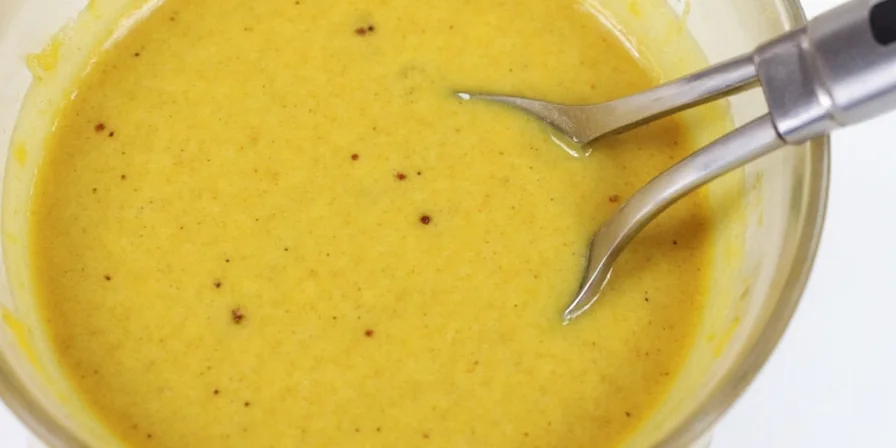

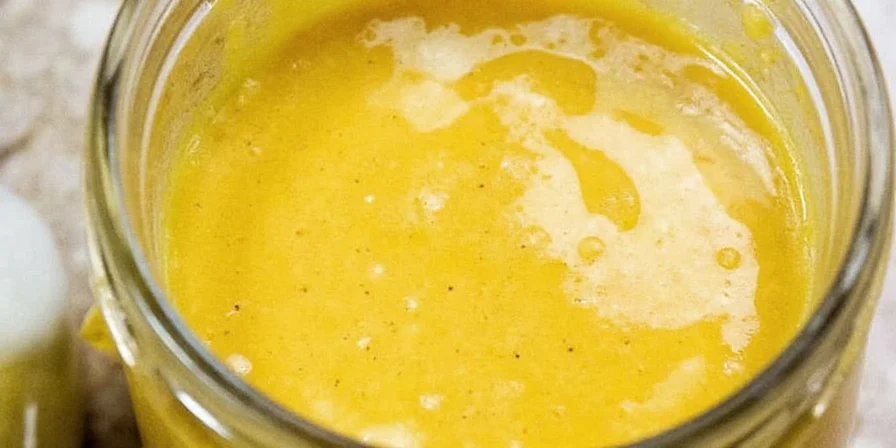









 浙公网安备
33010002000092号
浙公网安备
33010002000092号 浙B2-20120091-4
浙B2-20120091-4